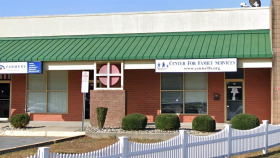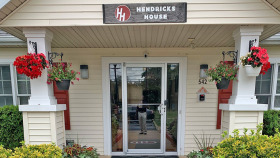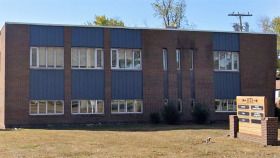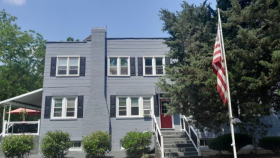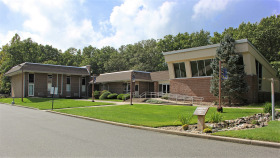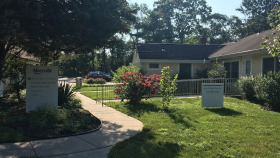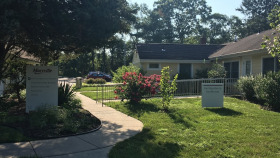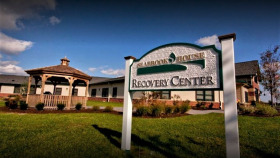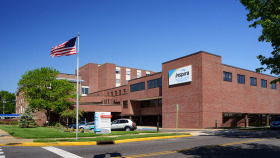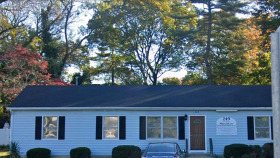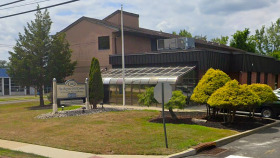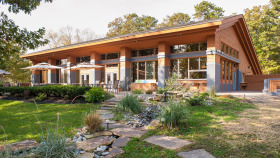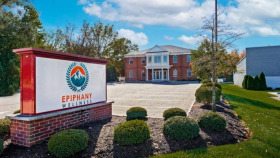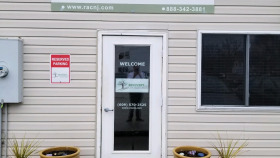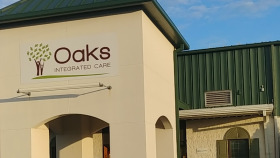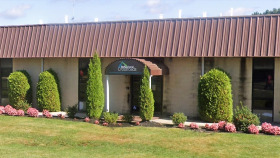Alcohol and Drug Use Statistics in Vineland, NJ
Opioids aren’t the only cause for concern in Cumberland County. Here’s a quick overview of some 2018 substance use addiction treatment center admissions for Cumberland residents:2
8% of all treatment admissions were for cocaine addiction.
28% of individuals received outpatient care (OP) while 24% received intensive outpatient care (IOP).
11% of individuals received short-term inpatient care while 6% received long-term inpatient care.
Levels of Substance Abuse Care
Multiple levels of care are available for addiction treatment. Some New Jersey residents move through each of these levels of treatment, while others need only the least intensive care.
Alcohol and Drug Detoxification
Detox is completed under medical supervision in a hospital, inpatient, or outpatient setting. This is the process of safely and comfortably removing drugs or alcohol from your system. Once detox is complete, you can move forward with other treatment services.
Inpatient Drug and Alcohol Rehab
Inpatient rehab, also called residential treatment, involves living at a treatment facility to receive 24/7 care. Services usually include individual and group therapy, medication, recreational therapy, and nutritional counseling.
Partial hospitalization programs (PHPs)
PHPs allow New Jersey residents to live at home while receiving treatment through a hospital. This program usually provides the same treatment services as inpatient care, but you can return home during non-treatment hours.
Intensive Outpatient Programs (IOPs)
IOPs are a step down from PHPs, allowing you to attend a few hours of counseling each week while living at home. This provides time to maintain a work schedule or fulfill other obligations.
Standard Outpatient
Standard outpatient programs involve just one to two hours of treatment per week. This level of treatment involves the least supervision and is appropriate for highly motivated people who have a strong support system.
Aftercare
Also known as relapse prevention, aftercare starts once your rehab program is complete. It includes ongoing support such as 12-step programs, sober living homes, and therapy.
How to Pay for Drug Rehab in Vineland, New Jersey
New Jersey Medicare
New Jersey Medicare provides health insurance to New Jersey residents who are 65 or older or have certain other health conditions. You are automatically enrolled in this program at age 65 if you are receiving Social Security or Railroad Retirement Board retirement benefits.
Many Medicare options are available in New Jersey that go beyond basic coverage, such as Medicare Advantage Plans and Medigap plans. The New Jersey State Health Insurance Assistance Program (SHIP) offers free help with questions regarding Medicare benefits and policies. Not all treatment centers accept Medicare insurance coverage, so always do your research before choosing a provider.
New Jersey Medicaid
New Jersey’s Medicaid program provides health insurance to New Jersey residents who are aged, blind, or disabled, to pregnant women, and to parents/caretakers and dependent children. To be eligible for New Jersey Medicaid, a person must be a resident of New Jersey, be a U.S. Citizen or qualified alien, and meet specific standards for financial income. You must apply for Medicaid coverage in New Jersey, and the rehab program must accept Medicaid as a method of payment.
Sliding Scale Rehabs
Sliding scale rehabs assist New Jersey residents who have limited financial resources to pay for treatment. You will be charged based on what you can reasonably afford to pay. To qualify for a sliding scale rehab in New Jersey, you typically need to provide proof of income.
TRICARE in New Jersey
New Jersey TRICARE (East region) is a government program that provides health insurance coverage for U.S. military personnel, veterans, and their families. TRICARE covers addiction treatment services; however, various plans differ in their coverage.
IHS-Funded Drug Rehabs
The Indian Health Service (HIS) funds addiction treatment for Indigenous people and Alaskan Natives in New Jersey and nationwide. This coverage is provided even if other insurance payment is available.
Traveling to and Within Vineland, New Jersey

If you’re planning to attend drug or alcohol rehab in Vineland, it’s a good idea to get to know the area you’ll be receiving treatment. If you’re planning to visit a loved one at a treatment center there, you’ll need to know how to get in and around Vineland.
Some handy travel tips can help make coming, going, and staying a bit easier:
- The closest airport to Vineland is Atlantic City Airport, which is about 24.5 miles away. The second closest airport is Philadelphia International, which is 29.6 miles away.
- Regarding public transportation, you can reach Vineland via the NJ Transit line. Once in Vineland, you can hop on the NJ Transit Bus line to get around.
- Uber, Lyft, Didi, and Ola are widely available in Vineland. You can also find traditional taxis or rent a car to get around.
- There’s no shortage of hotels, motels, and other accommodations for your stay in or near Vineland.
- Vineland is extremely walkable. However, you may need to arrange transportation depending on your plans for the day.
- Aside from the parks and outdoor activities, Vineland is home to the Delsea Drive-In Theatre, Indian Trail Farm, the Tempest Raceway, and plenty of other fun attractions to enjoy.
New Jersey Drug and Alcohol Laws
New Jersey policy makers have established the following laws related to substance misuse.1,2,3,4,5
New Jersey Good Samaritan Law: New Jersey’s Overdose Prevention Act provides protection from criminal prosecution for New Jersey residents who report or seek help for suspected overdose on illegal drugs. The law encourages people to call 911 immediately, without fear of legal repercussions.
New Jersey Driving or Operating Under the Influence Laws: Under New Jersey Law, if an offender’s blood alcohol content (BAC) is between 0.08 and 0.10, the penalties are a fine of $250-$400, imprisonment for up to 30 days, driver’s license forfeiture until ignition interlock is installed (required for 3 months), a minimum of six hours a day for two days in an Intoxicated Driver Resource Center, and an automobile insurance surcharge of $1,000 per year for three years. Penalties increase for higher BACs and repeated offenses.
New Jersey Drug Courts: This program offers non-violent drug offenders an alternative to prison. New Jersey residents convicted of a drug-related crime may be eligible to complete a supervised drug or alcohol treatment program instead of serving jail time.
Resources
- State of New Jersey Department of Health. (n.d.). Drug-Related Hospital Visits.
- State of New Jersey Department of Human Services. (2018). Substance Abuse Overview 2018 Cumberland County.

